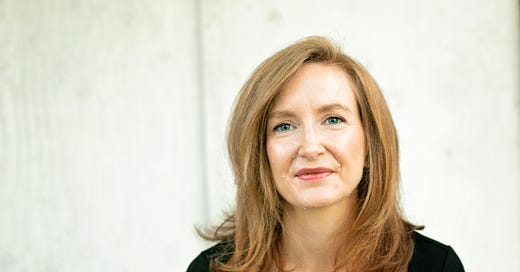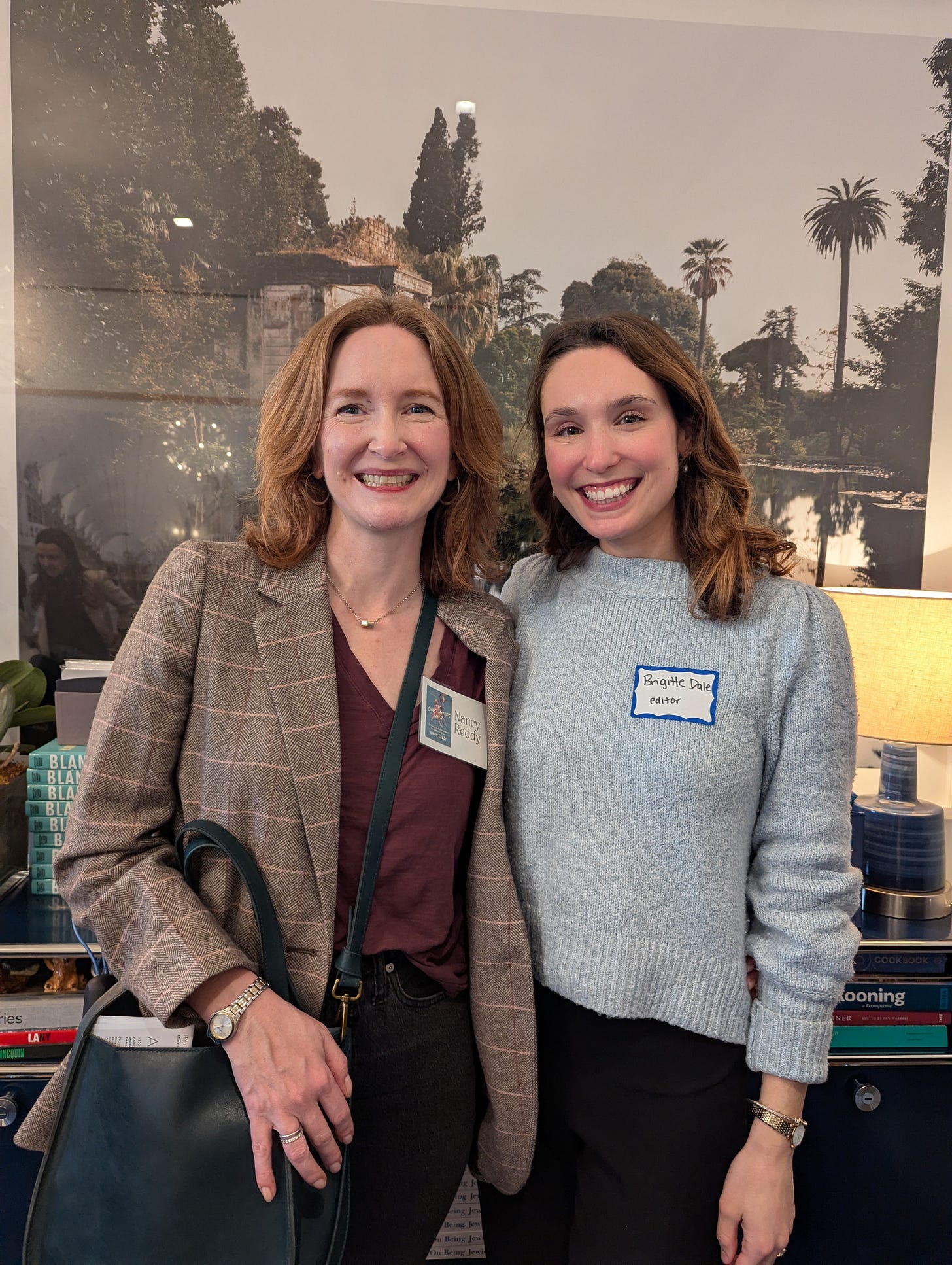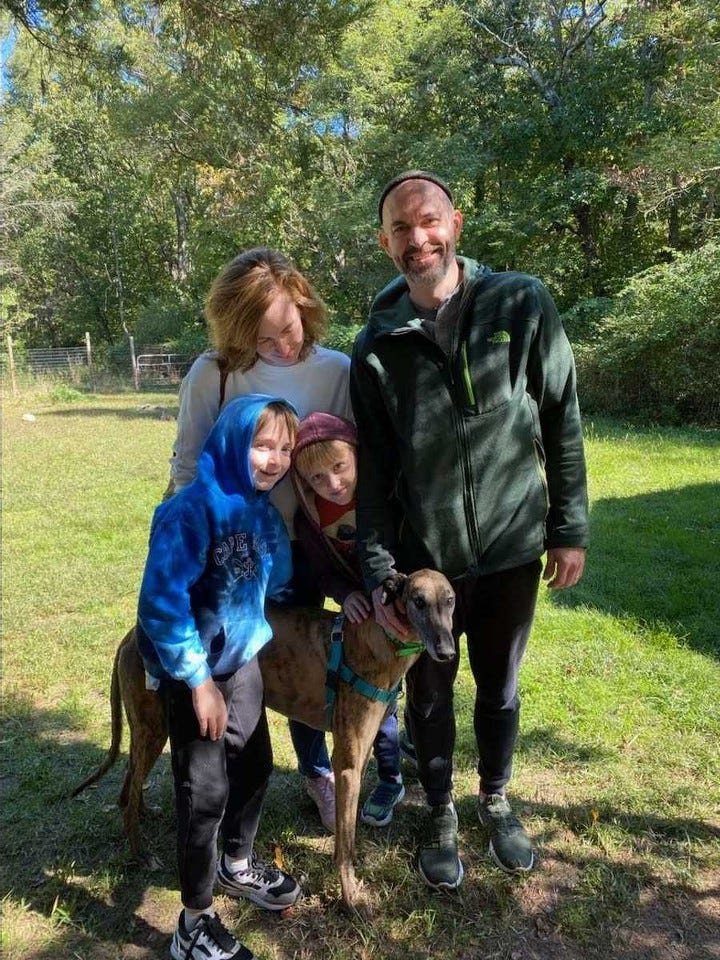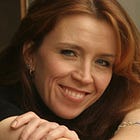The Good Work
The Body, Brain, and Books: Eleven Questions with writer Nancy Reddy
Welcome to another edition of The Body, Brain, & Books. If you enjoy reading these quick, insightful interviews brimming with wisdom and hope, please subscribe to Beyond.
Nancy Reddy is the author of The Good Mother Myth, published by St. Martin’s Press in January 2025. Her previous books include the poetry collection Pocket Universe and the anthology The Long Devotion: Poets Writing Motherhood, which she co-edited with Emily Pérez. Her essays have appeared in Slate, Poets & Writers, Romper, The Millions, and elsewhere. She writes the newsletter Write More, Be Less Careful. You can find her on Instagram at nancy.o.reddy.
What are you reading now?
I’m reading Bowling Alone, which is one of those landmark books that I felt like I’d read because I knew the overall thesis—we’re spending less time with our neighbors and more time inside, alone—and that’s not inaccurate, but there’s so much nuance and richness in the book that isn’t captured in that little thumbnail summary. It feels incredibly relevant for our moment right now, and the desire that I and so many people I know have for more community and deeper connections to the places where we live.
And I just got an early copy of my friend Nicole Graev Lipson’s Mothers and Other Fictional Characters, and I’m excited to dive in!
What are your most beloved books from your youth? Did you ever hide any from your parents?
I was always a big reader, but I remember going through a really intense period of reading when I was in probably third or fourth grade. The books that I read in that time just felt more real to me, more immersive than probably anything since—Hatchet, The Cay, Island of the Blue Dolphins. I have no idea how any of those books hold up, but I remember just being totally absorbed in them as I read.
I don’t know if I ever hid any specific books, but I remember adults other than my parents thinking it was odd that I read so much—we had a babysitter after school for a time who told my mom I was a weird kid for always wanting to be in my room with a book. (Which: possibly true! But it certainly made her job easier, so I don’t know why it bothered her!) And my fourth grade teacher told my mom I read too much, but that was probably because I was always trying to sneak extra reading in during math class.
3. What’s your favorite book to reread? Any that helped you through a dark time?
In general, I’m not a big re-reader, but Annie Dillard’s The Writing Life feels like a magical renewable resource to me. It’s such a slim book, but every time I open it, I find something new in it. It’s on my desk in front of me right now. One passage I thought of often as I worked on my most recent book:
“Putting a book together is interesting and exhilarating. It is sufficiently difficult and complex that it engages all your intelligence. It is life at its most free.”
What that meant to me, I think was something like this: writing this book feels incredibly hard and totally absorbing, and that’s exactly how it’s supposed to be.
What’s an article of clothing that makes you feel most like you?
I’ve long thought of the cardigan as a kind of emotional support object—something to wrap yourself up in as you sit or walk or face the world—but I’ve become enamored of blazers lately. I bought a really beautiful oversized plaid blazer on Poshmark recently and it makes me feel a little invincible.
What’s the best piece of wisdom you've encountered recently?
I was on a call earlier today with the women in my writing group, and one of them was talking about her job search and a call she had scheduled later today. She said, I asked myself, what’s the biggest thing I can ask for? and then she described her dream job. I just thought that was so powerful: what if instead of scrabbling and hoping for something good, we dreamed up the most audacious thing we could imagine, and then asked for it?
Tell me about any special relationship you’ve had with an animal, domestic or wild?
I don’t think of myself as an animal person in general, but we got a greyhound, Taplin, two years ago after a lot of hemming and hawing from me (we have a small house, and that’s a big dog!) and I love him. He’s enormous and sweet and actually very low maintenance—a couple big laps in our backyard in the morning, maybe a walk to school with our younger kid, and then he naps all day. And what I love most about him is how he brings me into the world. We talk to different neighbors when we’re out with him; we’ve met other neighborhood pets, including an incredibly brave cat named Buddy who walks right up to him to say hello; and I just experience my neighborhood differently when I’m walking at his pace.
What's one thing you are happy worked out differently than you expected?
I never particularly meant to live in New Jersey, and we’ve been here for years now, and I love it. When I went on the academic job market, my husband and I wanted to move closer to our family in Pittsburgh, so I applied for every job I could find in a five-hour radius, and we ended up in a small town just outside Philadelphia. The unstated goal of my PhD program was to get us all into prestigious jobs at big universities or elite small colleges, and I felt for a while like I hadn’t lived up to that because I teach at a decidedly unfancy regional public. But the work I do is meaningful, and we love where we live.
Singing in the shower or dancing in the kitchen? Or another favorite way your body expresses itself?
Singing in the car. And running, sometimes with singing if the mood really strikes.
What are your hopes for yourself?
I have big dreams for my writing and the books I want to work on next. But my biggest dream is to stay interested in the world, to keep learning and evolving and meeting new people. Particularly as I watch people I love begin to age, that seems like the key to a happy and meaningful life: continuing to believe the world is interesting, and working to be part of it.
What’s a kindness that changed your life?
I’ve been thinking a lot about kindness because I’m facilitating a book club at my university about Catherine Denial’s A Pedagogy of Kindness. Denial argues that kindness is different from mere niceness, that it’s a discipline. Some of the biggest kindnesses in my life have been people who’ve had high expectations for my work and have conveyed those expectations with the faith that I could reach them.
Too many to list now, but I’ll share one: as I was beginning my doctoral exams, I excitedly typed up probably six pages of all my best ideas and sent them off to my mentor. He highlighted a single paragraph, probably near the end, and said: this is what you should focus on. He didn’t say: cut all that other junk. What kindness! To find the part that was interesting and point me in the right direction. That could have been a crushing moment—all those earnest words, right in the woodchipper!—but it was energizing and motivating.
What’s a guiding force in your life?
Intellectually, the desire to understand the longer history behind the things we take for granted. I don’t do the scholarly work I was trained for anymore, but I still have that habit of mind, and I’m grateful for that. I love asking a question and tracking down the answers.
Personally, the desire to feel more connected to my neighbors and my community. There’s so much to despair about if we look too far above our heads, but when I talk to my neighbors, when I learn about the good work people are doing in our schools and our community, I feel a lot of hope.
If you enjoyed Molly’s questionnaire, you may also enjoy this one with Samantha Dunn:










Jane and Nancy, thanks for this great interview. Nancy, your desire to stay interested in the world, learning and evolving and connecting with people is wonderful. To me it's the gold standard of wishes and dreams, if there ever was such a thing, because it's simply the most important thing! I love that that is your hope for yourself!
Another great edition:)